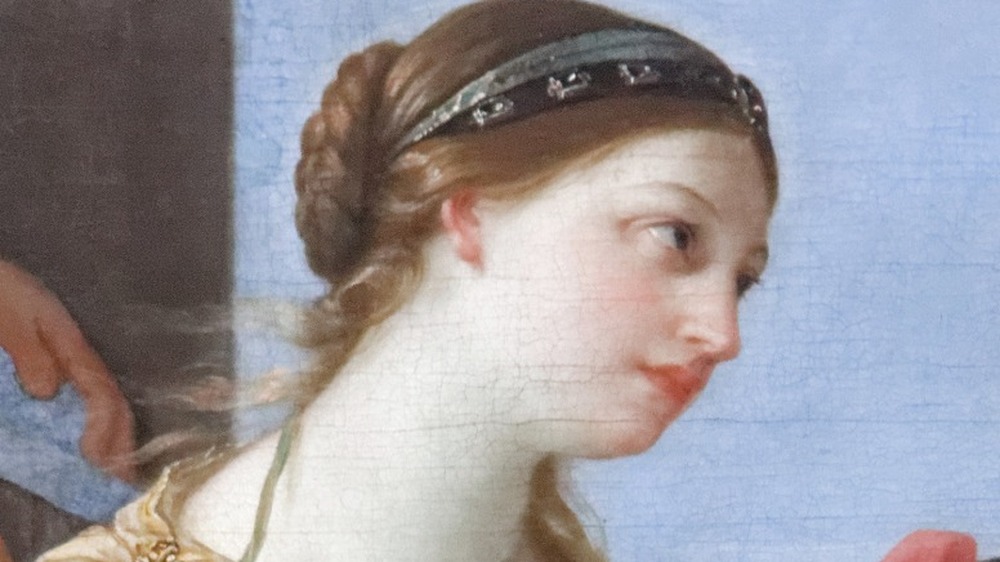The Reason Helen Of Troy Was Kidnapped
Helen of Troy, the daughter of Zeus, garnered admiration for her beauty in Ancient Greece. But such attractiveness can also be a curse, and this mythic figure's greatest legacy, as English playwright Christopher Marlowe wrote in The Tragical History of Dr. Faustus, as "the face that launched a thousand ships," became associated with adultery and war.
Greek poet Homer, who tells the tale in the "Iliad," according to Ducksters, writes how the abduction of Helen, wife of Spartan King Menelaus, and the battle to bring her home causes the decade-long Trojan War. For Helen, her beauty always led to temptation with some men, like the Athenian hero Theseus who killed the Minotaur, abducting her. Her brothers, Pollux and Castor, rescued her, and she returned to Sparta.
As a young woman, so sought was Helen's hand in marriage — including Odysseus, the subject of Homer's other great epic poem, "The Odyssey" — that her human father, Tyndareus, king of Sparta, feared a battle might break out, according to the Theoi Greek Mythology Website. Odysseus, who really wanted to marry Penelope, offered him a solution if he helped him win her as a bride: Tyndareus should get an oath from all suitors "that they would defend the favored bridegroom against any wrong that might be done him in respect of his marriage." He did and Menelaus, the youngest son of Atreus, king of Mycenae, became Helen's husband. Those oaths would haunt the young men after she disappeared from Sparta.
A trick horse returns a king's love
The next part of the story becomes murky. Some believe that Paris, the son of King Priam and Queen Hecuba of Troy, kidnapped her. However, Greek legend asserts that the war between Sparta and Troy really started when the goddess of strife, Eris, offered a golden apple as a prize for the most beautiful Titan. Zeus recruited Paris to determine whether Athena, Hera, or Aphrodite deserved the honor.
All three offered Paris bribes. According to World History Encyclopedia, "Athena promised him strength, beauty, and invincibility in battle; Hera offered the regions of Asia and immense wealth; and Aphrodite offered the most beautiful woman in the world: Helen."
Paris collected his prize when he stayed in Menelaus' home during a diplomatic trip. Whether the two really fell in love or if Aphrodite charmed Helen is debated.
The Trojan War ended when a wooden horse filled with Greek soldiers was left as a gift, conceiving the phrase, "beware of Greeks bearing gifts." The armed men "set fire to the city, killed the Trojan men, and took many of the Trojan women," according to ThoughtCo. Paris is killed during the attack and Helen and Menelaus reunite.
Some versions of their reunion reveal Menelaus as angry, raising a sword to her before becoming enamored of her beauty once more. Other stories cast Menelaus as instantly forgiving his wife of any transgressions. According to Britannica, they lived happily together until Menelaus died.

